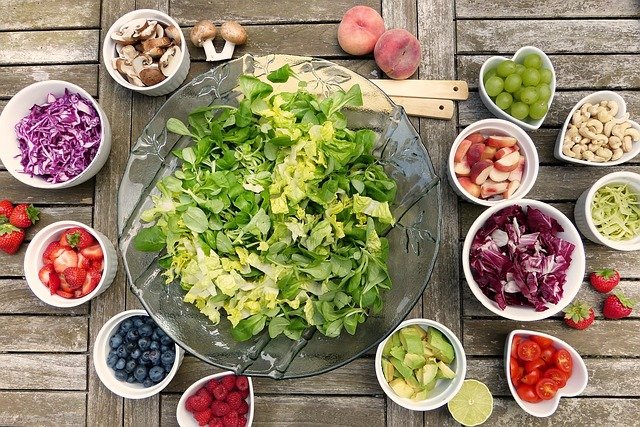
Maculopathy and nutrition
It seems that one of the most effective ways to protect the retina and effectively counteract the onset of degenerative maculopathy or slow its development is the correct intake of nutrients. This statement is now confirmed by many scientific researches.
Can “simply” a balanced and correct diet limit the risk of developing maculopathy and/or delay its development? From what emerges from international scientific studies, the answer is: yes! There are foods, or rather substances contained in foods that Mother Nature has given us, powerful allies in the protection of that priceless good that is our sight.
One of these is lutein, a substance that our body cannot create on its own but can easily be integrated with food. Lutein belongs to the category of carotenoids, plant pigments of lipid nature easily identifiable for that beautiful red, orange and yellow color; carotenoids have a strong antioxidant capacity and act as photoprotective agents. The most well-known and important are alfacarotene, betacarotene, gammacarotene, lycopene, zeaxanthin and, precisely, lutein.
Lutein is very important for the protection of sight as it concentrates mainly in the macula, the central part of the retina, and is very “intelligent”, because it is able to recognize and filter excess light, or harmful radiation that are among the main risk factors for macular degeneration.
Foods rich in lutein that should never be missing from our table are carrots, tomatoes, corn and all green or green leafy vegetables: green cabbage, parsley, spinach, broccoli and Brussels sprouts, peas, green beans.
But it doesn’t end here: the diet for the well-being of sight also wants other vitamins and antioxidants such as E, C, selenium, lycopene as well as minerals such as copper and zinc that help fix vitamins. For this reason, in addition to a nice portion of mixed salad seasoned with extra virgin olive oil – an English research shows that nutrients are more easily absorbed by the body using this type of dressing – you cannot miss some snacks based on fresh fruit and a little dried fruit, rich in minerals.
Attentive readers will have noticed that this type of diet corresponds to our Mediterranean diet, full of vegetables, fruit, cereals, to which to add plenty of fish, rich in Omega-3 antioxidants. Quite the opposite, in short, of “fast food” style nutrition.
Since degenerative maculopathy begins to manifest around the age of 50, it goes without saying that prevention must be started years earlier. It is therefore important to give good eating habits from childhood to reach adulthood as healthy as possible.
And now, some sight-saving curiosities:
- The food richest in lutein: curly cabbage.
- The anti-aging drink: at the top is green, black and Colong tea, also very useful for cataracts.
- Citrus fruits for vitamin C? Not only! Peppers and broccoli are also rich in it.
- Too much choice at the supermarket? Trust the bright colors: orange, yellow, green… you can’t go wrong! To allow yourself a break from the rule, throw yourself on dark chocolate, the one with at least 70% cocoa: it is a concentrate of flavonoids, on par with black blueberries and grapes, very useful for the health of the eyes.
Finally, if you really want to treat yourself to a glass, choose a good red wine: in small doses it has a beneficial effect on the macula.
To health!
Discover our solutions for maculopathy and academia FONDA, our dedicated training course.
#maculopathy #nutrition
